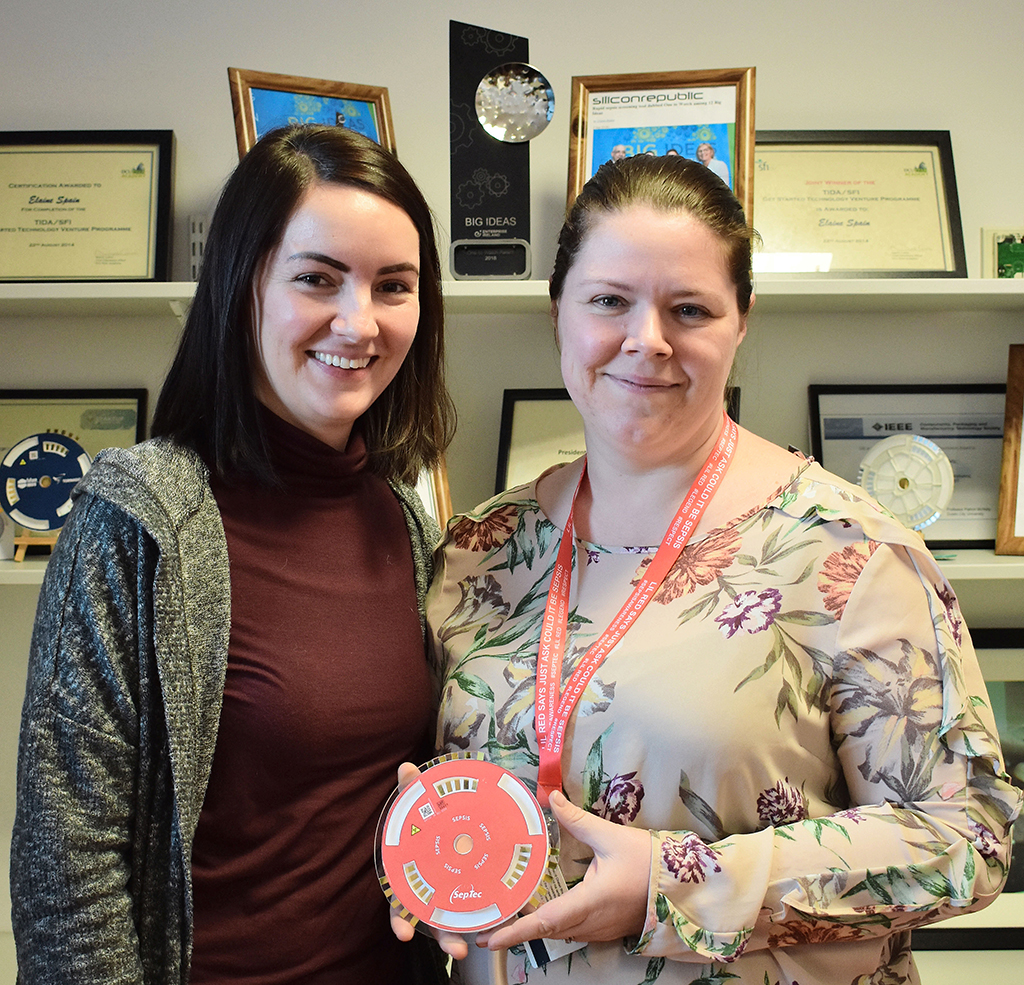Orla Dwyer
TWO scientific researchers from Finglas are paving the way towards quicker and more accurate sepsis diagnosis with an innovative analysing device.
Dr Elaine Spain and Dr Kellie Adamson are co-founders of SepTec, a research project based in Dublin City University.
They have created a device that can dramatically reduce the diagnosis time for sepsis from one to six days to just 15 minutes.
Sepsis is an illness that affects almost 30 million people worldwide each year and kills an estimated six million. Although it is incredibly common, current diagnosis methods are 150 years old.
Sepsis occurs when the body’s response to an infection injures tissue and organs, potentially leading to death. Diagnosis time is critical because for every hour delay in diagnosis, there is an estimated eight per cent decrease in chances of survival.
“The whole idea was to develop a rapid test to diagnose sepsis-causing bacteria as quick as possible,” said Adamson.
The blood sample enters the analyser and a result comes out 15 minutes later indicating if sepsis is present and whether it is fungal or bacterial.
The device has performed excellently in pre-clinical studies in St James’s and Beaumont hospitals.
As results currently take so long to come back, health care professionals begin non-specific antibiotic treatment within one hour of the test.
This can lead to antibiotic overuse, extended hospital stays and potential fatalities.
“By knowing the family of bacteria in the bloodstream rather than giving a broad spectrum antibiotic, the physician can give a more targeted treatment,” explained Spain.
The pair, along with DCU Professor Robert Forster, founded SepTec in 2014 after receiving an Enterprise Ireland Commercialisation Fund. Spain’s grandmother passed away due to sepsis, which was the reason for their focus.
“Back then, the awareness was non-existent. Even though they might say pneumonia, now we know that it was sepsis that actually caused that to happen,” explained Adamson.
The team hired an NCAD student to design the analysing device, which was built from scratch within six months. SepTec was recently awarded a Science Foundation Ireland award and a One to Watch award at Enterprise Ireland’s Big Ideas showcase.
Once the validation of the device is complete, the team will be looking for investment to get the product onto the market.
“We need to validate it as much as possible. You obviously don’t want to get a false negative. False positives you can handle because they’ll be treated anyways but the biggest thing you don’t want is false negatives,” emphasised Adamson.
Spain estimates it will take at least another two or three years before the device is on the market and it will cost €5-€10 million to reach that point.
“It might be a smart move to further develop the technology in the States. There is a significant amount of funding over there, it’s a completely different ball game,” said Spain.
“But the first thing we want to do is bring it into Ireland. We obviously want to treat our own first,” added Adamson.
The main priority for SepTec going forward is to get the product on to the market.
“We don’t want it to be left hidden away somewhere by one of our competitors, but we have already started putting in a plan for other diseases and other different markets that we can put this technology in,” said Spain.
